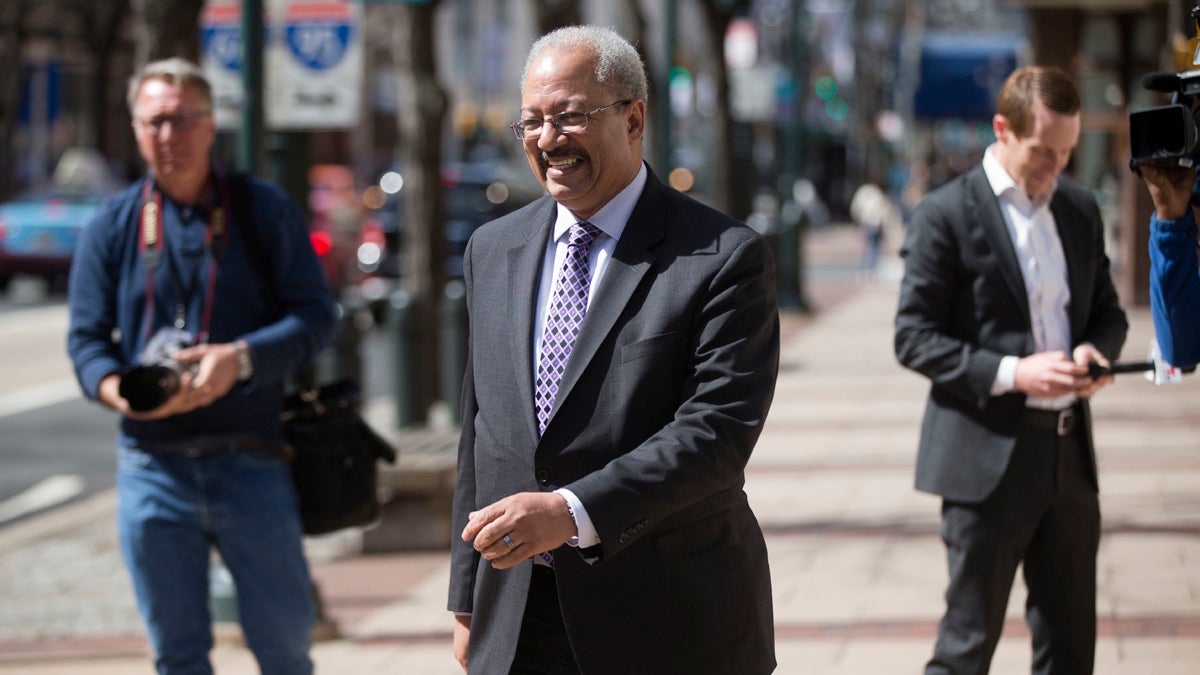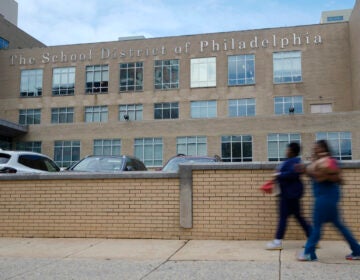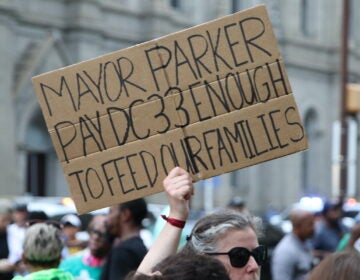Fattah corruption trial moving more quickly than expected

The federal corruption trial of Congressman Chaka Fattah may conclude sooner than previously anticipated. His defense lawyers are slated to call their first witness on Friday
A Philadelphia jury will start weighing the fate of indicted U.S. Rep. Chaka Fattah sooner rather than later.
Fattah’s federal corruption case was originally projected to take about two months. It may now end in half that time.
Federal prosecutors were expected to complete their side the high-profile case Thursday. Defense lawyers are slated to call their first witness on Friday, which means the case could wrap up by the end of the next week.
That timeline will likely change if Fattah takes the stand. Whether that will happen remains unclear, and his lawyers aren’t giving any clues.
Legal experts aren’t surprised. They say it’s a tough decision with a lot of potential pitfalls.
“You worry about the politician having this confidence in himself — that he’s spoken to groups before and he’s able to handle himself in a courtroom. Getting on a witness stand when you have your freedom at stake is different,” said veteran criminal defense lawyer Frank DeSimone.
Fellow defense attorney Chuck Peruto Jr. is a bit more blunt: Fattah shouldn’t testify — there’s just nothing to gain from it.
“The only benefit he would get from testifying is if he were an Academy Award-winning actor, where the jury felt sympathy for him, he was trying to do the right thing when he did all these things. They weren’t correct. And he wasn’t subjected to cross-examination,” said Peruto. “So we all know that’s not going to happen.”
Fattah has fiercely maintained his innocence, called the charges against him “frivolous,” and predicted complete exoneration.
In his opening statement, Mark Lee, one of Fattah’s three lawyers, said his client “had nothing to do” with any of the five schemes alleged in the 85-page indictment filed against Fattah and four associates in July.
For three weeks, federal prosecutors have worked to prove otherwise, presenting scads of evidence and witnesses with hopes of convincing jurors that Fattah sat at the center of a criminal enterprise hatched for personal and political gain.
Fattah is accused of accepting an illegal $1 million loan in 2007 while running for Philadelphia mayor, then stealing federal and charitable grants to help repay part of the loan.
Prosecutors also say the 11-term lawmaker took bribes from a wealthy friend looking to become a U.S. ambassador; used campaign cash to help pay off his son’s college loan debt; and tried to steer federal grants to a fake nonprofit to settle up with a political consultant.
Herbert Vederman, a former deputy mayor of Philadelphia, is one of four co-defendants charged alongside Fattah.
Also charged under the indictment are Bonnie Bowser, a former chief of staff at Fattah’s congressional office in Philadelphia; Karen Nicholas, a former congressional staffer and CEO of the Educational Advancement Alliance, a nonprofit Fattah founded; and Robert Brand, founder of the for-profit organization Solutions for Progress.
Fattah allegedly used EAA and Solutions for Progress as conduits to repay the illegal loan made to his failed mayoral campaign.
Fattah’s former chief of staff, Gregory Naylor, and political consultant Tom Lindenfeld have previously pleaded guilty. Both have directly linked Fattah to some of the criminal activities alleged in the government’s dizzying 28-count indictment.
The pair’s testimony is believed to be critical to prosecutors getting a conviction, given the lack of concrete evidence — emails or voice recordings — tying Fattah to the charges filed against him.
Whether Fattah is convicted or acquitted, he won’t be returning to Congress in 2017. After more than two decades in office, he lost April’s Democratic primary to state Rep. Dwight Evans, one of three men who ran against him in the 2nd Congressional District.
WHYY is your source for fact-based, in-depth journalism and information. As a nonprofit organization, we rely on financial support from readers like you. Please give today.





